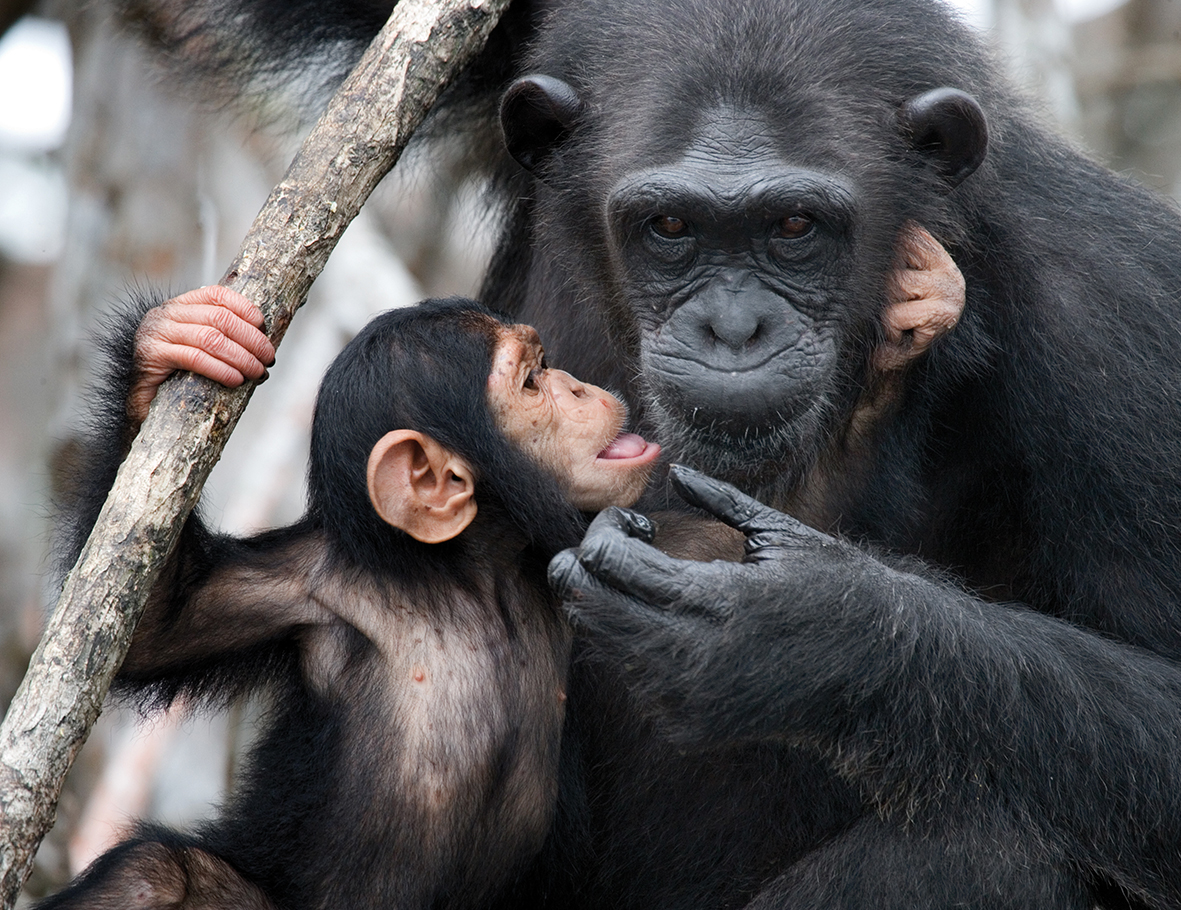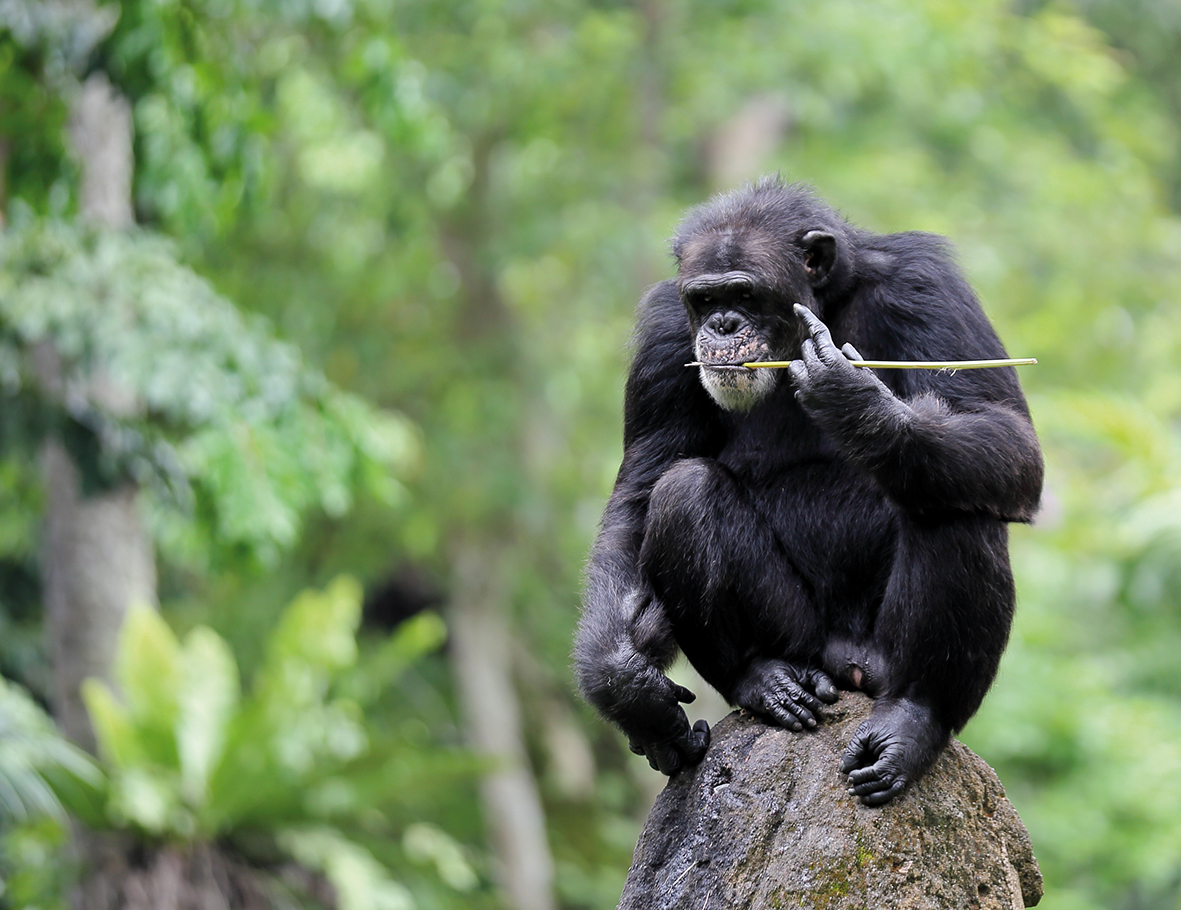Ivory Coast
Protecting Chimpanzees in West Africa
They are a fascinating animal species – yet their population is greatly endangered. The Academy had already helped the Akatia Zoo in Abidjan
in 2013 to control and protect the size of their chimpanzee population. This assistance was continued in 2018 in the form of medicine and equipment.
At first view it may be incomprehensible for a layperson: although there are decreasing numbers of chimpanzees in the world, birth control in zoos is equated with animal protection. The Academy also supports this approach however only when it involves animal species which won’t be reintroduced into the wild. Chimpanzees belong to this category.
When they are born in zoos, they don’t learn natural behaviors, such as searching for food, from their mothers. Therefore a reintroduction into the wild would mean certain death. Dr. Maltzan had already assisted the Abidjan Zoo in 2013 by introducing a new veterinary concept which included population management, in other words, birth control, and had rebuilt the zoo’s practice. Since then, the Academy has repeatedly helped with in-kind donations and medicine such as Implanon®. This pharmacological name stands for hormone sticks which are implanted in the animals. Such a method should serve to maintain the population at a size which guarantees species-appropriate keeping for the chimpanzees at that particular zoo.
The Academy supported the Akatia Zoo in 2018 mainly with medicine and in-kind donations which were again transported via Estelle Raballand, the project coordinator of the National Zoo of Abidjan. The report of her experience:
„Nikla got really sick. I think she got pregnant when we changed the door between her and the boys, and then she
lost the fetus. She was bleeding fresh blood when I saw her and had been sick for a few days. She was lying down and wouldn't eat. It took loads of persuasion for the first few
days of treatment to administer the medicine. She was on Ibuprofen and Augmentin. She recovered after a few days. We will use one of our remaining implants when I go back
in order to prevent another miscarriage (and we don't want her to get pregnant)”.
Additional support for the zoo is also essential in the future, as a letter from Dr. Kané Samouka, Director of the Adidjan Zoo reveals:
“Many thanks for all of the medicine you have donated to the Abidjan Zoo. Dr. Estelle Raballand brought them to us. It helps us to solve the transfer problems (anesthesia).
We hope that your Academy can also assist us in finding sponsoring for the repair of our infrastructure. In some cases it is so old that animals sometimes can get out (for example some primate species). This sponsorship could take place through cooperation or NGO. We will remain in contact with you. Thank you very much.”


